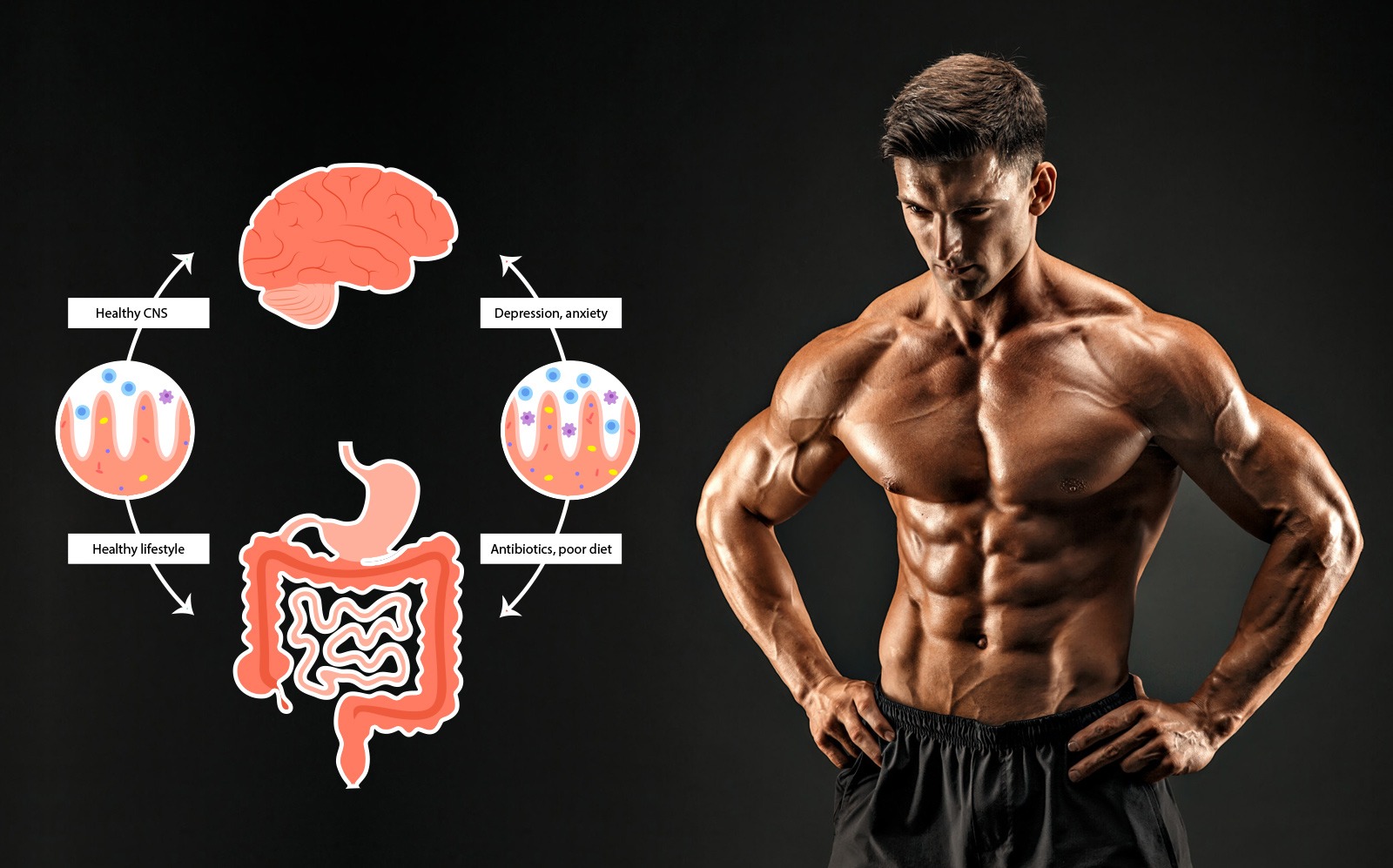
Mental Health and Weight Loss: Healing Your Mind to Transform Your Body
Mental health and weight loss are deeply interconnected, often influencing each other in complex ways. While most weight loss strategies focus solely on diet and exercise, neglecting mental well-being can sabotage progress and create a cycle of emotional eating, stress, and self-sabotage.
💪 Fitness Guru
38 min read · 26, Feb 2025

Introduction
When it comes to weight loss, most people instantly think of diet plans, workout routines, and calorie counting. While these physical aspects are crucial, the often-overlooked element in any weight loss journey is mental health. Your mind and body are deeply connected, and without addressing the emotional and psychological factors influencing your weight, achieving sustainable results becomes challenging.
Weight loss isn’t just about shedding pounds; it's about shedding limiting beliefs, unhealthy habits, and emotional burdens. The key to successful weight loss lies in healing your mind, building a positive relationship with your body, and fostering a strong sense of self-worth. This article explores how mental health and weight loss are intertwined and how transforming your mind can lead to lasting physical transformation. When people think about weight loss, their minds often jump straight to dieting, exercise routines, and calorie counting. However, what many fail to realize is that true, sustainable weight loss is not just a physical journey—it is deeply rooted in mental health. Your mindset, emotional well-being, and mental habits play a critical role in how successfully you can lose weight and maintain a healthy lifestyle. Healing your mind is just as important as healing your body, and the two are intricately connected. Our mental health influences our eating habits, motivation, and overall relationship with food and exercise. Stress, anxiety, depression, and low self-esteem can all drive unhealthy behaviors such as emotional eating, binge eating, or complete neglect of physical activity. When you feel mentally drained or overwhelmed, you may turn to food for comfort—often unhealthy, high-calorie options—leading to weight gain. Conversely, when you are mentally strong and balanced, you are more likely to make mindful choices, stay consistent with your fitness routines, and resist the urge to use food as a coping mechanism.Stress triggers the release of cortisol, a hormone that can increase appetite and make you crave sugary, fatty foods. This biological response can create a vicious cycle: you feel stressed, you eat to soothe yourself, and then you feel guilty about overeating, which adds to your stress. Breaking this cycle requires mental resilience. Developing stress management techniques—such as meditation, journaling, yoga, or deep breathing exercises—can help lower cortisol levels and prevent emotional eating. It’s not about suppressing your emotions but finding healthier ways to process them. Negative body image and low self-esteem often go hand in hand with weight struggles. If you constantly criticize yourself or feel unworthy, it becomes harder to stick to a weight loss plan. You might think, "What’s the point? I’ll never be good enough." This toxic mindset can sabotage your progress before you even begin. Healing starts with self-love. Celebrate small wins, appreciate your body for all it does, and set realistic goals. When you approach weight loss from a place of self-respect rather than self-loathing, your journey becomes more sustainable and fulfilling. Mindful eating is a powerful practice that merges mental health and weight loss. It involves paying full attention to the eating experience—savoring each bite, recognizing hunger and fullness cues, and understanding the emotions tied to your eating habits. Often, we eat mindlessly while watching TV or scrolling through our phones, consuming far more than we realize. Mindful eating encourages you to slow down, chew thoroughly, and truly enjoy your food. This practice not only helps with portion control but also strengthens your connection with your body’s needs. Weight loss is not a linear journey—it’s filled with ups and downs. A positive mindset helps you stay committed even when progress feels slow. One way to build this mindset is by shifting your focus from "I have to lose weight" to "I want to be healthier and feel better." Reframe setbacks as learning experiences rather than failures. Keep a journal to track your thoughts and emotions, and regularly remind yourself why you started this journey. Visualization techniques, where you picture your healthiest, happiest self, can also motivate you to push forward. Human connection is vital for both mental health and weight loss. Surround yourself with supportive friends, family, or even online communities who encourage your progress. Sharing your struggles and victories with others keeps you accountable and inspired. If mental health issues feel overwhelming, seeking professional help from a therapist or counselor can provide the guidance you need. A strong support system can lighten the emotional load and fuel your motivation. Mental health plays a crucial role in forming lasting habits. Extreme diets or punishing workout routines are rarely sustainable because they stem from a place of urgency or dissatisfaction. Instead, focus on small, manageable changes—like drinking more water, walking daily, or adding more vegetables to your meals. These gradual shifts build confidence and consistency. When your mind embraces these changes as part of a healthier lifestyle rather than a temporary fix, your body will follow. Ultimately, weight loss is not just about shedding pounds—it’s about shedding limiting beliefs and emotional burdens. When you heal your mind, you create a solid foundation for transforming your body. Prioritize mental wellness through self-care, positive affirmations, and stress management. Recognize that your worth is not tied to a number on the scale, and your journey is unique to you. By nurturing your mental health, you empower yourself to make lasting, healthy changes that go beyond the physical.
So, as you step onto this path, remember: a strong mind leads to a strong body. Heal your heart, calm your thoughts, and watch as your body transforms—not out of punishment, but out of love and balance.
Understanding the Connection Between Mental Health and Weight Loss
Mental health impacts every aspect of your weight loss journey. Your thoughts, emotions, stress levels, and self-perception play a crucial role in determining your eating patterns, motivation to exercise, and overall lifestyle choices. Let’s break down the most common mental health factors that affect weight loss:
- Stress and Cortisol Levels Stress triggers the release of cortisol, a hormone that increases appetite, particularly for sugary and high-fat foods. This “stress eating” can sabotage your efforts, causing you to consume more calories than your body needs. Moreover, chronic stress slows metabolism, making weight loss even more challenging.
- Emotional Eating Emotional eating involves using food as a way to cope with feelings such as sadness, loneliness, boredom, or anxiety. Instead of eating to satisfy physical hunger, people turn to comfort foods to numb their emotions. This creates a vicious cycle of guilt and overeating.
- Body Image and Self-Esteem Poor body image and low self-esteem can deter progress. When you constantly criticize yourself or feel unworthy of good health, you may unconsciously sabotage your efforts by skipping workouts or indulging in unhealthy foods. A positive body image, on the other hand, fosters self-love and motivates you to care for your health.
- Depression and Anxiety Mental health conditions like depression and anxiety often reduce energy levels, disrupt sleep, and influence eating habits — all of which affect weight loss. Some people lose their appetite, while others overeat to cope with overwhelming feelings.
Healing Your Mind to Transform Your Body
Addressing your mental health is a vital step toward achieving your weight loss goals. Here are some effective strategies to heal your mind and support your body transformation:
- Cultivate Self-Awareness Begin by understanding your emotional triggers. Keep a journal to track what, when, and why you eat. Identifying patterns can help you recognize whether you're eating out of hunger or emotion.
- Practice Mindful Eating Mindful eating means paying full attention to the taste, texture, and smell of your food without distractions. It helps prevent overeating, promotes better digestion, and allows you to appreciate the food you consume.
- Develop a Positive Body Image Speak kindly to yourself. Replace negative self-talk with affirmations like:
- "I am more than my weight."
- "My body deserves love and care."
- "I am working towards becoming healthier every day." Embrace progress over perfection and celebrate small victories.
- Manage Stress Effectively Stress management techniques like meditation, deep breathing exercises, yoga, or spending time in nature can lower cortisol levels. Reducing stress improves both mental clarity and metabolic function, aiding weight loss.
- Set Realistic and Meaningful Goals Instead of focusing solely on weight loss numbers, set holistic goals such as:
- Exercising three times a week for better mood.
- Preparing home-cooked meals to nourish your body.
- Drinking enough water to stay energized. These small, achievable goals build consistency and motivation.
- Seek Professional Support If emotional struggles are overwhelming, consider working with a therapist or counselor. Cognitive-behavioral therapy (CBT) is particularly effective for addressing emotional eating and self-sabotaging behaviors.
- Surround Yourself with Positive Influences Your environment shapes your habits. Join supportive communities — whether online or offline — that promote mental wellness and body positivity. Being around like-minded people boosts motivation and accountability.
The Power of Mind-Body Connection
The mind-body connection is powerful. When your mental health flourishes, you naturally make healthier choices without feeling forced. You'll notice:
- Better Sleep: Improved mental health reduces insomnia, allowing your body to rest and repair — crucial for weight loss.
- Increased Energy: A positive mindset enhances motivation, pushing you to move more and stay active.
- Balanced Hormones: Lower stress levels stabilize hunger hormones like ghrelin and leptin, reducing unnecessary cravings.
The Mind-Body Connection:
- Emotional Eating:
- Stress, anxiety, and depression often trigger overeating or cravings for comfort foods high in sugar and fat. This emotional eating can result in weight gain or an inability to lose weight.
- Stress and Cortisol:
- Chronic stress increases the release of cortisol, a hormone that not only boosts appetite but also promotes fat storage, especially around the belly.
- Self-Esteem and Motivation:
- Poor mental health can lower self-esteem, making it harder to stay motivated. Negative self-talk and feelings of unworthiness often cause people to give up on their health goals.
- Sleep and Hormonal Imbalance:
- Mental health struggles can impact sleep quality. Sleep deprivation affects hormones like ghrelin (which increases hunger) and leptin (which signals fullness), making weight loss more challenging.
Healing the Mind to Support Weight Loss:
Mindful Eating:
Practicing mindfulness while eating helps you recognize true hunger versus emotional hunger. It encourages slower eating, better digestion, and a stronger connection with your body’s signals.
Stress Management:
Incorporating meditation, yoga, deep breathing exercises, or therapy reduces stress, lowering cortisol levels and preventing stress-induced weight gain.
Building a Positive Mindset:
Affirmations, gratitude journaling, and surrounding yourself with supportive people foster self-love and confidence, keeping you motivated on your journey.
Therapy and Counseling:
Addressing underlying mental health issues with a therapist can break the cycle of emotional eating and negative thought patterns, allowing you to build healthier habits.
Consistent Routines:
Creating routines for exercise, meal planning, and relaxation builds stability, which is crucial for both mental and physical health.
Conclusion
Weight loss is not just a physical battle; it’s a mental and emotional journey. By healing your mind, fostering self-love, and addressing emotional triggers, you build a solid foundation for sustainable weight loss. True transformation happens when you align your mental health with your physical goals — nourishing your mind and body simultaneously. Remember, your worth isn’t measured by a number on the scale. It’s reflected in how you treat yourself, the habits you cultivate, and the love you show to your mind and body. Start small, be kind to yourself, and embrace the journey — because healing your mind is the first step to transforming your body
Healing your mind is a powerful and necessary step in transforming your body. Mental health influences eating habits, motivation, and stress levels — all of which directly impact weight loss. By addressing emotional struggles, practicing mindfulness, and building a positive mindset, you create a strong foundation for lasting weight loss. True transformation happens when both the mind and body work in harmony, leading to not just a healthier body, but a more resilient and confident you.
Q&A Section:
Q1: How does mental health affect weight loss?
Ans: Mental health impacts weight loss by influencing eating habits, motivation, and stress levels. Conditions like anxiety, depression, and stress can trigger emotional eating and hormonal imbalances, making weight loss harder.
Q2: What is emotional eating, and how can it be managed?
Ans: Emotional eating is using food to cope with feelings rather than physical hunger. It can be managed by practicing mindful eating, identifying emotional triggers, and finding healthier coping strategies like journaling or meditation.
Q3: Can stress cause weight gain?
Ans: Yes, stress increases cortisol levels, which boosts appetite and promotes fat storage, especially around the belly, contributing to weight gain.
Q4: Why is sleep important for weight loss?
Ans: Sleep regulates hormones like ghrelin and leptin, which control hunger and fullness. Poor sleep can increase cravings and disrupt metabolism, making weight loss more difficult.
Q5: How can mindfulness support weight loss?
Ans: Mindfulness helps you recognize physical hunger cues, avoid emotional eating, and savor meals, leading to better portion control and healthier eating habits.
Q6: What role does therapy play in weight loss?
Ans: Therapy can address underlying mental health issues, break patterns of emotional eating, and build positive coping mechanisms, supporting long-term weight loss success.
Q7: Is it possible to lose weight without improving mental health?
Ans: While short-term weight loss is possible, sustainable and healthy weight loss often requires addressing mental health to avoid self-sabotage, stress eating, and motivational struggles.
Q8: How can I stay motivated during my weight loss journey?
Ans: Build motivation by setting small, achievable goals, practicing self-compassion, tracking progress, and surrounding yourself with supportive people or a coach.
Q9: What are some stress management techniques for better weight loss?
Ans: Effective techniques include meditation, deep breathing exercises, yoga, journaling, and engaging in hobbies that bring you joy and relaxation.
Q10: How long does it take to see results when healing the mind and body together?
Ans: Results vary for everyone, but with consistent mental health practices and lifestyle changes, noticeable improvements in both mindset and weight loss can occur within weeks to months.
Similar Articles
Find more relatable content in similar Articles

Microbiome and Muscle: Gut Health as a Hidden Fitness Tool...
Unlock the hidden potential of.. Read More

How Chefs Stay Fit in High-Pressure Kitchens...
Working in a high-pressure kit.. Read More

Fitness Lessons from Wild Animals – Move Like Nature Intende..
“Discover how observing wild a.. Read More

The Science of Breathwork: Fitness Beyond Muscles...
Exploring how conscious contro.. Read More
© 2024 Copyrights by rFitness. All Rights Reserved.